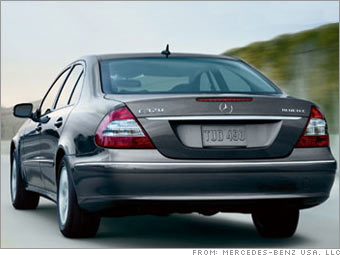Diesels have been scarce in the U.S. because of strict emissions standards that older diesel engines couldn't meet and because of poor consumer perceptions of diesel engines.
Today's diesels don't puff out black foul-smelling smoke like older ones did. Because of other advancements, they don't make those clanging, rattling noises, either.
Ultra-clean diesel fuel, which has greatly reduced sulfur content, is now available at many gas stations. Like unleaded gasoline, this low-sulfur fuel allows for more advanced emissions cleaning technologies.
Diesel engines cost more to produce than gasoline engines, though, and the need for extra emissions cleaning devices adds even more to the cost.
Purchase costs: Adds about $1,000 to $2,000 to vehicle cost. It can be difficult to judge final consumer cost since the diesel engine is often not directly comparable to a gasoline engine available in the same model. Unrelated features may also be included in the diesel version, and car companies don't break out the cost of the engine separately.
Efficiency: Increases fuel efficiency from 12 to 35 percent compared to the same model with a similar-sized gasoline engine.
Fuel costs: Uses ultra-clean diesel fuel, which fluctuates in price independently of gasoline. The engine's greater efficiency acts to reduce fuel costs, but how much is ultimately saved depends on the price of diesel fuel compared to gasoline.
Performance: If your only experience with diesel engines comes from watching buses and trucks or driving an old diesel car from the 1980s, performance is much better than you think. It is a little different from driving a gasoline-powered vehicle, though. Engine RPMs are lower than with a gasoline engine and the engine sound, while not harsh or noisy, is slightly different, too. But when you step hard on the gas pedal, the turbocharger kicks in quickly. (All modern diesel engines are turbocharged.) With its superior torque - torque gives the pull you feel when accelerating - you'll be surprised how quick a diesel car can be.
Greenhouse gases: Diesel fuel contains more carbon than gasoline so it releases more C02 per gallon burned. The diesel engine's greater fuel efficiency, however, means considerably less C02 is released per mile driven compared to a similar-sized gasoline engine.
Other pollution: Even with cleaner fuels and improvements in emissions controls, modern diesel engines still emit more smog-forming emissions than gasoline engines, particularly nitrous oxide.
The future: By 2010, diesel cars will be held to exactly the same EPA emissions standards as gasoline-powered vehicles. Several car companies say they will make cars to meet those standards.

